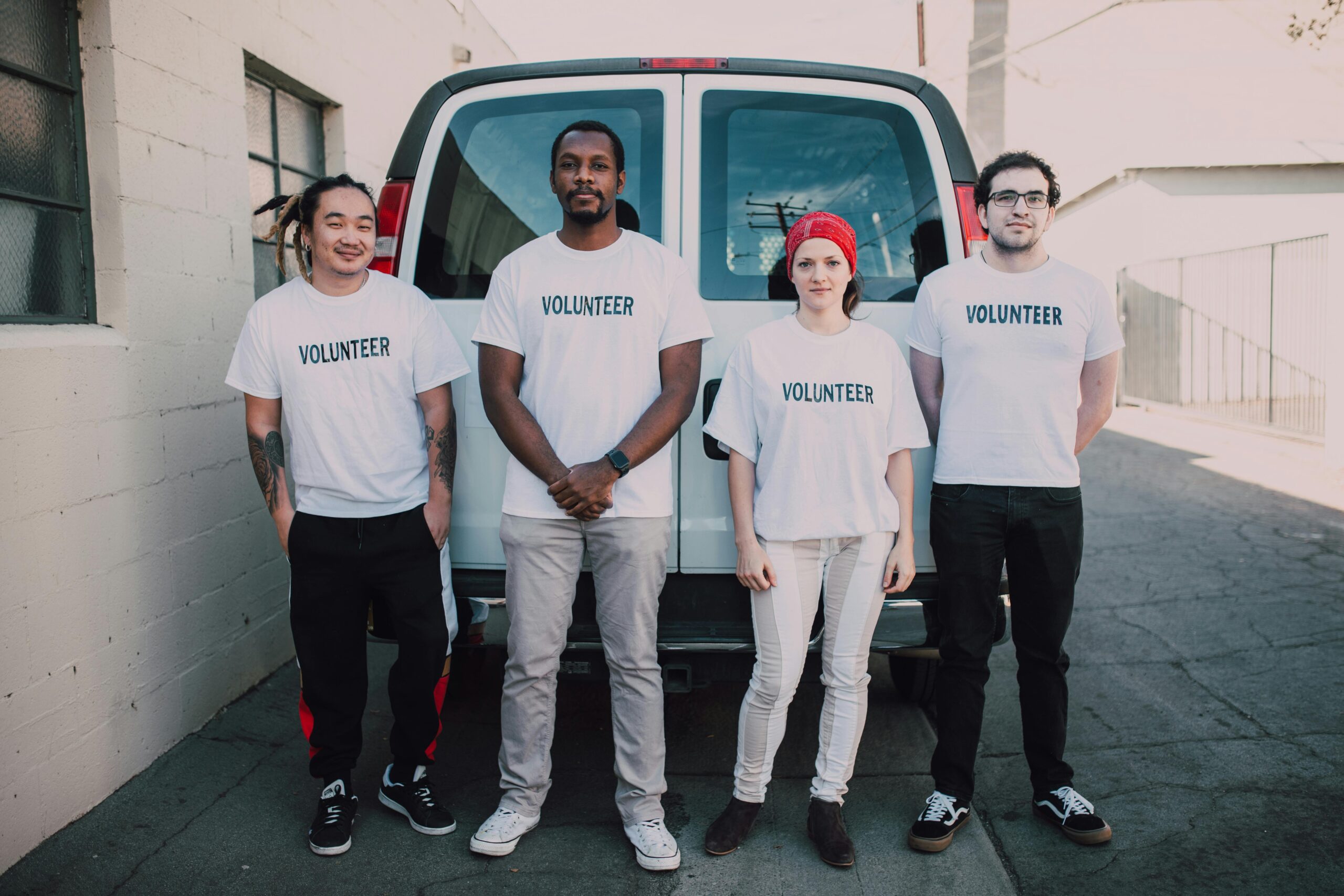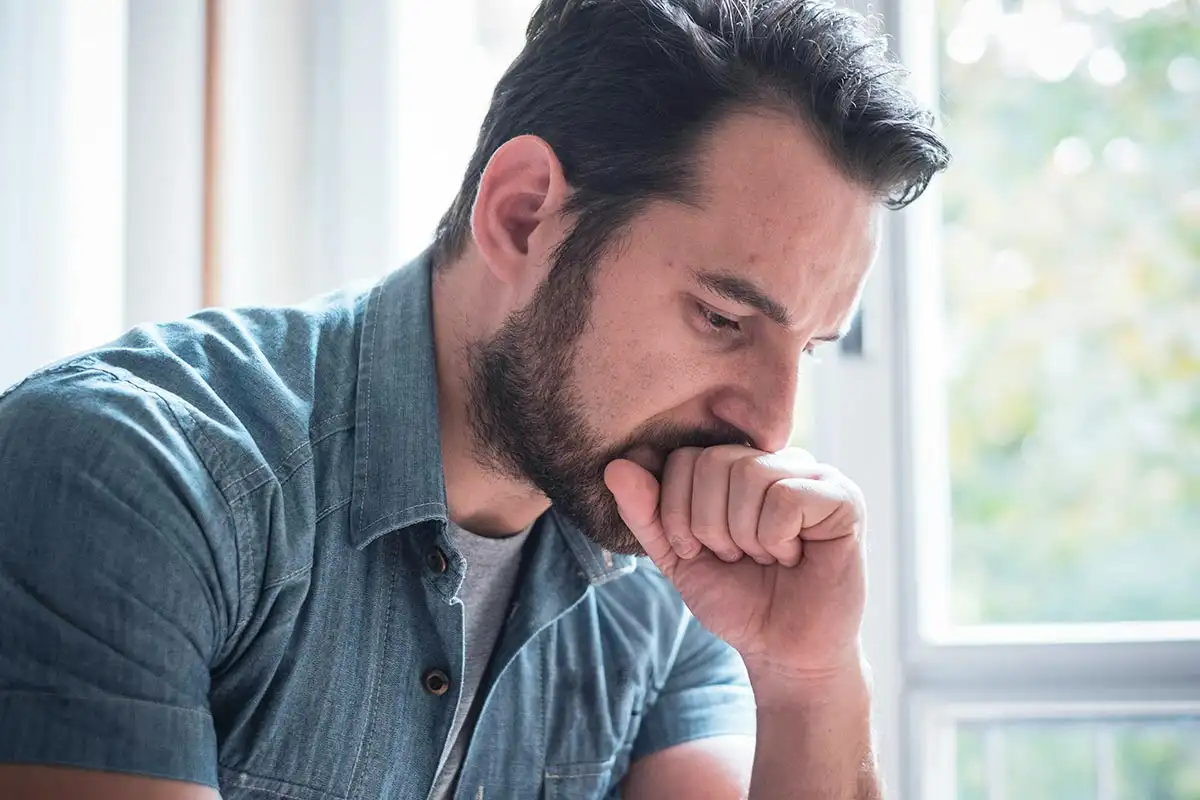
How Virtual IOP in California Impacts Family Dynamics Positively
Medically Reviewed by:

Dr. Marco M. Zahedi
Medical Director, Compassion Recovery Center

Dr. Michael Majeski
Licensed Psychologist (LP), Compassion Recovery Center
Table of Contents
The Healing Bridge: How Virtual IOP in California Strengthens Family Connections
Living with addiction can feel isolating, not just for the individual struggling, but for their entire family. The journey to recovery is profound, and when undertaken with the support of loved ones, its success can be greatly amplified. In California, a new pathway to healing is emerging, offering flexibility and comprehensive care: Virtual Intensive Outpatient Programs (IOPs). A Virtual IOP Program is an online treatment model that allows individuals to receive intensive therapy and support from the comfort and privacy of their own homes. This approach is particularly relevant in a sprawling state like California, where accessing specialized care can sometimes mean long commutes or uprooting one’s life. For residents of Orange County and beyond, telehealth addiction treatment is breaking down barriers to recovery.
But what does this mean for families? The impact of virtual IOPs extends far beyond the individual; it has the remarkable potential to positively transform family dynamics. Imagine a scenario where geographical distance, work schedules, or childcare responsibilities no longer prevent family members from participating actively in their loved one’s recovery. Virtual IOPs create this possibility. They open doors for families to heal together, learn new ways of communicating, and rebuild bonds that may have been strained by addiction. This shared journey can foster deeper understanding, empathy, and a collective movement towards a healthier future. The importance of family involvement in addiction recovery cannot be overstated. Addiction is often referred to as a family disease because it affects everyone in the household, altering relationships, creating stress, and often leading to feelings of confusion, anger, or helplessness. When families are involved in the treatment process, they not only learn how to support their loved one effectively but also gain tools for their own healing and growth. This holistic approach is central to lasting recovery. As we delve deeper, we will explore how these innovative programs are not just treating addiction but are also mending the intricate fabric of family life. If you or someone you care about is seeking a flexible and supportive path to recovery, we encourage you to explore treatment options with Compassion Recovery Center.

Understanding Virtual IOP: A New Horizon in Addiction Treatment
A Virtual Intensive Outpatient Program (IOP) is a structured form of addiction treatment that provides comprehensive therapy and support services remotely, using secure telehealth platforms. Think of it as bringing the core components of a traditional rehab facility’s outpatient program directly to you, wherever you have an internet connection. This typically includes a significant time commitment each week, often several hours a day for multiple days, encompassing individual therapy sessions, group therapy, psychoeducational workshops, and skills-training groups. The “intensive” aspect means it’s more concentrated than standard outpatient care, offering a robust level of support crucial for early recovery or for those needing a step-down from residential treatment. The entire experience, from initial assessment to ongoing therapy, is facilitated online by licensed clinicians and therapists. This Virtual IOP Program model is rapidly gaining recognition as an effective and accessible form of Drug Rehab Programs and Alcohol Rehab Programs.
The differences between traditional and virtual IOP are primarily in the delivery method and the environment. Traditional IOPs require patients to travel to a physical clinic or facility for scheduled sessions. This can involve significant commute times, transportation costs, and the need to arrange time off work or childcare. In contrast, a virtual IOP eliminates these logistical hurdles. Participants can log in from their homes, offices, or any private space, offering unparalleled convenience. While traditional programs offer face-to-face interaction, modern telehealth platforms used in virtual IOPs provide rich, engaging video conferencing, secure messaging, and access to digital resources, ensuring a high level of connection and support. Furthermore, virtual IOPs can sometimes offer a greater sense of privacy and reduced stigma for individuals who may be hesitant to be seen entering a treatment facility. This makes services like our Intensive Outpatient Program (IOP) accessible to more people than ever before.
The benefits of virtual IOP extend to both patients and their families, creating a supportive ecosystem for recovery. For patients, the primary advantage is accessibility. Whether you live in a remote part of California or have a demanding schedule in bustling Orange County IOP, virtual treatment fits into your life, rather than requiring you to fit your life around treatment. This means individuals can often continue working, attending school, or caring for children while receiving intensive care. The comfort and familiarity of one’s home environment can also be conducive to healing, allowing individuals to practice coping skills in real-time within their daily lives. For families, virtual IOPs make participation significantly easier. Family therapy sessions can be scheduled with more flexibility, and members can join from different locations if necessary. This increased engagement means families can learn about addiction, understand the recovery process, and develop healthier communication patterns alongside their loved one. They become active partners in healing, which is invaluable. The ability to participate without the added stress of travel or extensive time away from other responsibilities makes family involvement more consistent and meaningful. If you’re considering if this approach is right for you or your loved one, we invite you to contact us for a confidential assessment.
The Role of Family in Virtual IOP: Weaving a Network of Support
The journey of recovery from addiction is rarely a solitary one. Family support is a cornerstone of sustainable sobriety, acting as a vital source of encouragement, understanding, and accountability. Addiction often creates ripples throughout a family system, impacting communication, trust, and emotional well-being. Therefore, when one member begins to heal, the entire family unit has an opportunity to heal and grow as well. In a Virtual IOP Program, the involvement of family is not just encouraged; it’s often an integral part of the treatment philosophy. This is because a supportive home environment significantly enhances the effectiveness of therapy and reduces the likelihood of relapse. When families understand the nature of addiction and are equipped with tools to navigate the challenges of recovery, they transform from passive observers into active, positive forces in their loved one’s journey. This understanding can help shift dynamics from enabling or codependent patterns to ones based on healthy support and appropriate boundary setting.
Virtual IOPs are uniquely positioned to facilitate robust family involvement. The inherent flexibility of telehealth breaks down many of the traditional barriers that might prevent families from participating. Imagine trying to coordinate a family therapy session when family members live in different cities, have conflicting work schedules, or face mobility challenges. Virtual platforms make these connections seamless. Family members can join sessions from their respective homes or offices, eliminating travel time and costs. This ease of access means more consistent participation in crucial family therapy and educational components. Furthermore, resources like articles, videos, and support group information can be shared digitally, allowing families to learn and grow at their own pace. The virtual setting can also feel less intimidating for some family members, encouraging more open and honest communication. It allows the therapeutic process to extend into the home environment in a practical way, helping families apply what they learn directly to their daily interactions. This is a key aspect of successful telehealth addiction treatment.
Many virtual IOPs, including those at Compassion Recovery Center, incorporate specific activities and therapies designed to engage and support families. These can include dedicated family therapy sessions, where a therapist works with the individual in recovery and their key family members to address communication patterns, unresolved conflicts, and strategies for mutual support. Virtual couples counseling rehab is another vital component, helping partners navigate the specific challenges addiction can place on a relationship, rebuild intimacy, and establish a shared vision for a sober future. Psychoeducational workshops for families are common, providing crucial information about the science of addiction, the recovery process, common triggers, and how to create a recovery-conducive home environment. These sessions empower families with knowledge, dispelling myths and reducing stigma. Communication skill-building exercises might be introduced, teaching families healthier ways to express needs, listen actively, and resolve disagreements constructively. For families dealing with co-dependency, specialized groups or resources may be offered. The goal of these integrated family components is to ensure that as the individual heals, the family system also becomes stronger, healthier, and more resilient. If you’d like to learn more about how your family can be involved in our programs, we encourage you to reach out.

Positive Impacts on Family Dynamics: Rebuilding and Reconnecting
One of the most profound outcomes of family involvement in a Virtual IOP California program is the marked improvement in communication and understanding within the family unit. Addiction often thrives in environments where communication has broken down, replaced by silence, misunderstandings, blame, or resentment. Virtual family therapy sessions provide a safe, structured space for members to learn and practice new, healthier ways of interacting. Guided by a therapist, families can begin to express their feelings and needs openly and honestly, without fear of judgment or unproductive conflict. They learn active listening skills, fostering a sense of being truly heard and understood, perhaps for the first time in a long while. A significant part of this process involves educating the family about addiction as a chronic brain disorder. This understanding helps to shift perspectives away from moral failing or lack of willpower, reducing blame and fostering empathy. Family members begin to see their loved one’s struggles through a lens of compassion, recognizing the courage it takes to seek help and engage in recovery. This newfound understanding paves the way for more supportive and constructive dialogue, essential for long-term healing. Learning to communicate effectively about substance use and recovery is a skill that benefits everyone.
Navigating the challenges of addiction treatment and recovery together can paradoxically become a powerful catalyst for strengthening family bonds. The shared experience of participating in a virtual IOP, attending family sessions, and supporting a loved one’s journey creates a common purpose and a renewed sense of connection. As families learn and grow together, they begin to replace old, painful memories with new, positive ones. Celebrating milestones in recovery—whether it’s a week of sobriety, a breakthrough in therapy, or improved family interactions—becomes a collective achievement, reinforcing unity and shared joy. The process of rebuilding trust, though often gradual, is a critical aspect of this bonding. Through consistent effort, honest communication facilitated by the virtual IOP, and demonstrated commitment to recovery, trust can be slowly restored, forming a more solid foundation for relationships. This journey, while difficult, can ultimately bring families closer, fostering a depth of connection that may have been absent even before addiction took hold. This shared effort can transform the family dynamics in IOP from strained to supportive.
Addiction often carries a heavy burden of stigma and shame, both for the individual and their family. This can lead to secrecy, isolation, and a reluctance to seek help. Virtual IOPs, by their very nature and through dedicated family programming, play a crucial role in reducing this stigma and cultivating empathy. When families engage in psychoeducational sessions and therapy, they gain a deeper understanding of the complexities of addiction. This knowledge helps to dismantle preconceived notions and judgments, replacing them with compassion and a desire to support. As family members hear about their loved one’s experiences in a therapeutic setting, and perhaps share their own, a sense of shared humanity emerges. Empathy grows as they witness the effort and vulnerability involved in the recovery process. This shift is transformative. It helps create a home environment that is not only free of judgment but actively supportive and encouraging of sobriety. Loved ones learn to recognize triggers, offer appropriate support without enabling, and celebrate the hard-won progress. This empathetic and informed approach is vital for preventing relapse and fostering a positive, recovery-focused atmosphere at home. We encourage you to start your recovery journey today, together with your family.
Evidence and Efficacy: Family Involvement in Virtual Treatment
While the widespread adoption of Virtual IOP California programs is relatively recent, the principles underpinning their success, particularly concerning family involvement, are well-established. Decades of research into addiction treatment have consistently highlighted the significant benefits of incorporating family therapy and support into recovery plans. Studies show that when families participate actively, treatment outcomes improve across various metrics: higher rates of treatment completion, longer periods of abstinence, improved family functioning, and enhanced overall well-being for both the individual in recovery and their family members. The core components of effective family therapy—such as improving communication, restructuring dysfunctional interaction patterns, and educating families about addiction—are readily adaptable to a telehealth format. Emerging research on telehealth addiction treatment itself is also increasingly positive, indicating that virtual programs can be as effective as, and sometimes even more accessible than, traditional in-person services for many individuals. Therefore, the combination of proven family therapy models delivered via effective telehealth platforms suggests a strong potential for positive outcomes in virtual IOPs that prioritize family engagement.
While specific, large-scale statistical data exclusively for “virtual IOPs with family participation” is still an evolving area of research, we can draw strong inferences from related fields. General IOPs that include a robust family component consistently report better success rates. For instance, individuals whose families are involved in their treatment are often more motivated, feel a greater sense of support, and are better equipped to handle the transition back into daily life post-treatment. The accountability that comes with family awareness and participation can also be a powerful deterrent to relapse. Telehealth delivery further enhances the potential for this involvement by removing logistical barriers. If a family member can easily join a therapy session via video call from their office during a lunch break, or from home without needing to arrange childcare, their participation becomes more feasible and consistent. At Compassion Recovery Center, we believe that this increased accessibility to family programming, facilitated by our virtual rehab California model, directly contributes to better, more sustained recovery outcomes. We encourage you to explore your options and verify your insurance online to see how accessible our programs can be.
The logic is compelling: if family therapy improves outcomes in traditional settings, and if telehealth makes family therapy more accessible and consistent, then virtual IOPs that integrate family work should yield positive results. The focus is on creating a supportive system around the individual. Addiction doesn’t happen in a vacuum, and neither does recovery. By educating families, helping them heal their own wounds related to their loved one’s addiction, and teaching them how to communicate and interact in healthier ways, virtual IOPs build a stronger foundation for lasting sobriety. The convenience of remote IOP allows therapists to engage with families more regularly and to provide resources and support in a timely manner. This continuous loop of care, involving the individual, the therapists, and the family, all connected through accessible technology, represents a significant step forward in making comprehensive addiction treatment available to more people in California, including those seeking an Orange County IOP.
Navigating Challenges in Virtual Family Recovery: Solutions and Support
While virtual IOPs offer numerous advantages for family involvement, it’s also important to acknowledge potential challenges and proactively seek solutions. One common hurdle can be technological literacy or access. Not everyone is comfortable with video conferencing software, and reliable internet access isn’t universal. Another challenge can be maintaining engagement and focus during online sessions, especially if the home environment has distractions. Pre-existing dysfunctional family dynamics can also surface more intensely when therapy enters the home space, requiring skilled navigation. Furthermore, family members themselves might experience emotional burnout or struggle with setting appropriate boundaries when their loved one is recovering at home. Resistance from certain family members to participate, due to stigma, denial, or their own unresolved issues, can also hinder the process. It’s crucial for programs like our Virtual IOP Program to anticipate these issues and offer robust support.
Fortunately, many strategies can be employed to overcome these challenges. For technological concerns, reputable virtual IOP providers offer clear instructions, technical support, and sometimes even trial runs to help families get comfortable with the platform. Encouraging a dedicated, quiet space for sessions and minimizing distractions (e.g., turning off notifications, informing other household members) can significantly improve focus. When it comes to difficult family dynamics, this is precisely where the expertise of trained therapists becomes invaluable. They can guide conversations, mediate conflicts, and help families establish healthier interaction patterns. For family members experiencing burnout, virtual IOPs often provide resources on self-care, stress management, and access to their own support systems, like Al-Anon or family support groups, which can also be found online. Therapists can work with families to understand the importance of supporting recovery without enabling, which involves clear communication and consistent boundaries. Addressing resistance to participation often involves gentle education about the benefits of family involvement and creating a non-judgmental space for reluctant members to voice their concerns and eventually, hopefully, engage. Building accountability within the virtual program is key for everyone involved.
The role of therapists in guiding families through the virtual IOP process is central to navigating these challenges successfully. Therapists at Compassion Recovery Center are skilled in facilitating online family therapy, creating a safe and productive environment for difficult conversations. They act as educators, helping families understand the disease of addiction and the recovery journey. They are mediators, assisting families in resolving conflicts and improving communication. They are coaches, equipping families with practical tools and strategies for supporting their loved one and for their own well-being. Therapists also play a crucial role in validating the experiences of all family members, acknowledging the pain and difficulty that addiction brings to everyone it touches. They can help families set realistic expectations for the recovery process, understanding that it’s a journey with ups and downs. Through consistent support and expert guidance, therapists empower families to become an integral part of the healing solution, transforming the home into a sanctuary for recovery. If your family is facing these struggles, we encourage you to reach out today; help is available.
Compassion Recovery Center: Integrating Family Healing into Virtual IOP
At Compassion Recovery Center, we deeply understand that addiction impacts the entire family. That’s why our Virtual IOP Program, serving Orange County and greater California, is designed with family healing at its core. Our philosophy is that lasting recovery is significantly enhanced when families are educated, supported, and actively involved in the therapeutic process. We don’t just treat the individual; we strive to help mend the relational fabric that addiction may have frayed. Our approach involves integrating families into the treatment plan from the outset, offering dedicated family therapy sessions, providing educational resources tailored to their needs, and ensuring our clinical team fosters an environment of open communication and mutual respect. We believe that by empowering families with knowledge and coping strategies, we create a stronger support system that extends far beyond the duration of the formal treatment program, fostering a healthier home environment conducive to long-term sobriety and well-being for everyone.
Our comprehensive Virtual IOP California services are specifically structured to support both individuals and their families. A cornerstone of our approach is online CBT therapy (Cognitive Behavioral Therapy). CBT is a highly effective, evidence-based therapy that helps individuals identify and change negative thought patterns and behaviors associated with addiction. For families, understanding CBT principles can be immensely beneficial; they can learn how to support their loved one in practicing new coping skills and reinforce positive changes. We also offer Medication-Assisted Treatment (MAT) online, where appropriate. MAT treatment online combines FDA-approved medications with counseling and behavioral therapies to treat substance use disorders, particularly opioid and alcohol addiction. We ensure families are educated about MAT, addressing any misconceptions and highlighting its role in reducing cravings and preventing relapse, which can alleviate family anxiety and improve support. For couples navigating the complexities of addiction and recovery, we provide virtual couples counseling rehab. These specialized sessions focus on rebuilding trust, improving communication, and strengthening the partnership as a cohesive unit supportive of recovery. Furthermore, many individuals struggling with addiction also face co-occurring mental health conditions like depression or anxiety. Our Dual Diagnosis Treatment capabilities ensure that both addiction and underlying mental health issues are addressed concurrently, a crucial aspect for holistic family healing, as untreated mental health conditions can strain family dynamics significantly.
Choosing Compassion Recovery Center for remote drug rehab Orange County offers distinct benefits. Our team consists of experienced, compassionate therapists who specialize in addiction and family systems. We are deeply familiar with the unique needs and resources within Orange County and extend our accessible services throughout California via telehealth. Our programs are built on evidence-based practices, ensuring you receive the highest quality care. We prioritize creating personalized treatment plans because we recognize that every individual and family situation is unique. The flexibility of our virtual platform means you can access intensive treatment without sacrificing your work, school, or family responsibilities. We are committed to not just helping individuals achieve sobriety, but to fostering genuine healing and reconnection within families. The journey to recovery can be challenging, but with the right support, it is also incredibly rewarding. We invite you to contact us for a confidential assessment to discover how our specialized virtual IOP can support your family’s path to a healthier, happier future. You can also easily check insurance coverage on our website to understand your options.
The Ripple Effect of Healing: A Brighter Future for Families
The journey through addiction and into recovery is one of profound transformation, not only for the individual but for the entire family system. As we’ve explored, Virtual IOP California programs are playing a pivotal role in making this healing journey more accessible, inclusive, and effective, particularly by fostering positive changes in family dynamics. The ability for families to actively participate in therapy and educational sessions from the comfort of their homes, unhindered by geographical constraints or demanding schedules, is a game-changer. This involvement leads to vastly improved communication, where misunderstandings and blame are replaced with empathy and open dialogue. It facilitates the strengthening of family bonds, as shared experiences in navigating recovery forge deeper connections and help rebuild trust. Furthermore, the process significantly reduces the stigma associated with addiction, as families gain a more profound understanding of it as a treatable condition, fostering a home environment that is genuinely supportive and conducive to lasting sobriety.
The ripple effect of this family-centered healing extends far beyond the immediate treatment period. When families learn new ways to communicate, support one another, and resolve conflicts constructively, these skills become ingrained, benefiting all relationships within the family unit for years to come. Children grow up in a healthier environment, partners rediscover intimacy and mutual respect, and the entire family becomes more resilient in the face of life’s challenges. The cycle of dysfunction that often accompanies addiction can be broken, replaced by a legacy of recovery, understanding, and compassion. We wholeheartedly encourage families across California, from Orange County to the furthest reaches of the state, to embrace the opportunity to engage actively in the recovery process. Your participation is not just helpful; it is often essential for creating the supportive foundation upon which lasting sobriety is built. Remember, you are not alone in this journey. The courage it takes for an individual to seek help is mirrored by the courage of a family willing to learn, grow, and heal alongside them. This collaborative effort is the hallmark of a truly comprehensive approach to addiction treatment.
If you or a loved one is struggling with substance abuse and you’re seeking a path to recovery that honors and includes the family, Compassion Recovery Center is here to help. Our Virtual IOP Program is designed to provide expert, compassionate care that addresses the needs of both the individual and their family. We offer a range of services, from online CBT therapy and MAT treatment online to specialized virtual couples counseling rehab, all accessible through our secure telehealth platform. Don’t let addiction continue to cast a shadow over your family’s well-being. Take the first step towards a brighter, healthier future. We invite you to start your free assessment today, or get help now by contacting our admissions team. Together, we can navigate the path to recovery and help your family rediscover hope, connection, and lasting peace.
What is a Virtual Intensive Outpatient Program (IOP)?
How does a Virtual IOP work?
Who can benefit from a Virtual IOP?
What are the benefits of family involvement in virtual IOP programs?
How does virtual IOP improve family dynamics?
What challenges might families face during virtual IOP?
How can families overcome challenges in virtual IOP?
What services does Compassion Recovery Center offer in their virtual IOP?
Struggling to balance life while needing support? Get expert virtual care and start your recovery journey, anytime, anywhere.
We’re learning more each day.
Researchers and doctors are making exciting progress in understanding mental health and addiction—bringing hope to millions.
Your genes don’t define you.
Genetics can play a part, but they don’t decide your future. Mental health is shaped by many factors, and healing is always possible.
There's no one-size-fits-all.
The right treatment often includes a mix of therapy, medication, and compassionate care—tailored just for you.


















